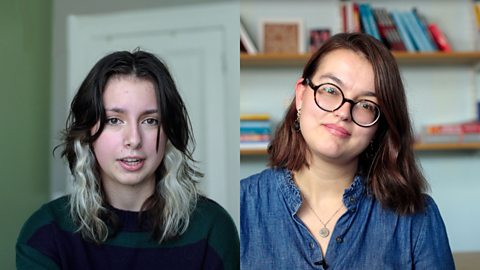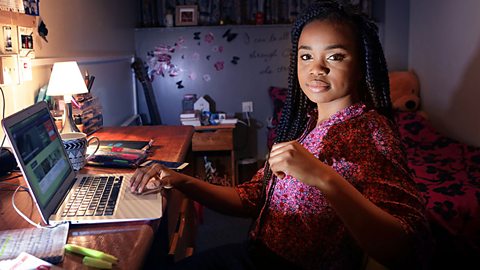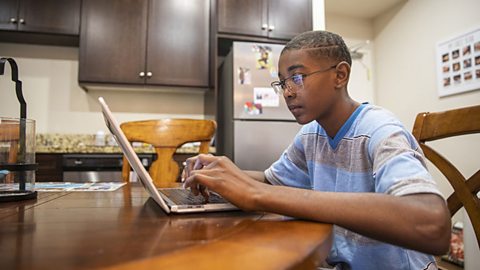You may identify as an auditory, visual or kinaesthetic learner, but what if we told you that it might be better to use a variety of methods in your studies?
In this informative video, learning scientist Dr Carolina Kuepper-Tetzel explains why it's a good idea to interact with what you're learning in lots of different ways and tells us why variety might just be the key to study success.
Eilidh: Hi, I'm Eilidh and I've been researching a lot about different study techniques. I'm here to find out which one's most effective so, I'm going to talk to learning expert Dr Carolina to find out more. Hi Carolina, I did a test online and figured out I was a visual learner. So what are the best study techniques for me?
Carolina: Okay, stop right there, because the learning styles and being a visual, verbal, kinaesthetic learner, that's actually a myth. The best thing to do is just like take this, put it away and instead engage with the material in many different ways using all your senses.
Eilidh: I did not expect that. So what should I be doing?
Carolina: Instead, what you should do is follow an approach that is called dual-coding. That means that you combine visual and verbal information, interact with the materials in many different ways. And you make those connections between verbal and visual information for example, and this will allow you to remember information better, so that it sticks better in your memory.
Eilidh: So, dual-coding, how do I actually apply that?
Carolina: So for example, when you're learning about the respiratory system in science, you can tackle that topic in different ways. You can read about it in your textbook, listen to it while your teacher explains it to you, look at an image and actually see what is going on in our respiratory system. And, you can come up with your own image as well and draw it. You can engage in mind mapping, in explaining how the system works and then try to create that mind map from memory. So this way you're combining different strategies.
Eilidh: Ah okay, so that makes sense. So it's not about finding the best study technique, it’s about finding a variety of them to get the best recall?
Carolina: Absolutely right. So you don't want to limit yourself to just one single way of learning.
Eilidh: Thank you so much for speaking to me today. I hope you have a good rest of your day.


What is dual coding?
When studying a new topic in school you could read about it in your textbook, listen to your teacher explain it, or look at images and pictures about that topic online. But is it better to stick to your 'preferred' way of learning to help you wrap your head around the topic? Not necessarily! Step up to the plate dual coding.
Dual coding involves interacting with your study material in different ways which should help you have a much better understanding of the topic. For example, when you read a text passage explaining a topic, you could try to draw an image that captures what you've just read. This could be in the form of a mind map or a flow chart – adding an image to illustrate something you read can help you visualise how different ideas are linked to each other more easily. Or if your teacher has provided a visual illustration of a new idea, using this image along with your teacher's explanation will really help boost your understanding of the topic because you are using dual coding – multiple different learning methods to understand a topic and solidify it in your mind. So next time you sit down to study, stop and think; is there an additional method I can use to really strengthen my learning?


So now you've mastered a couple of effective study techniques to help with your schoolwork, you can combine these with other techniques from the pages below to help you on your way to becoming a study-superstar!

If you need support
You should always tell someone about the things you’re worried about. You can tell a friend, parent, guardian, teacher, or another trusted adult. If you're struggling with your mental health, going to your GP can be a good place to start to find help. Your GP can let you know what support is available to you, suggest different types of treatment and offer regular check-ups to see how you’re doing.
If you’re in need of in-the-moment support you can contact Childline, where you can speak to a counsellor. Their lines are open 24 hours a day, 7 days a week.
There are more links to helpful organisations on BBC Action Line.

How sleep can help you study
Dr Carolina Kuepper-Tetzel answers questions about why sleep is so important and how it can help us with our learning.

Why it's best not to cram and other study tips
There has to be a better way to study than an all-night cramming session doesn't there? We ask Dr Carolina for her tips!

How to boost your resilience when studying
Dr Heather Branigan guides us through the basics of resilience in relation to studying.
